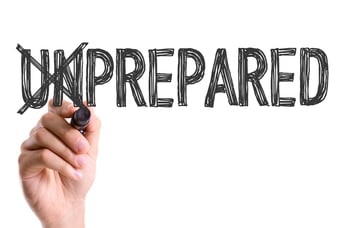
The information age has made almost the entirety of human knowledge available at our fingertips. However, it has also opened companies up to new types of threats, such as data breaches.
As we’ve seen with corporations like Target, Sony, Home Depot, and most recently HBO, it is getting to the point where a major hack is practically inevitable. To make matters worse, news moves at the speed of a tweet, meaning there’s less time for businesses to craft responses to these crisis situations.
That’s why now, more than ever, it is crucial to have a crisis communication plan. Here are four steps to creating a crisis plan should your business face a predicament in the future.
1. Identify the crises most likely to affect your business.
While it’s impossible to account for every possible catastrophe, you should know what calamities are most likely to befall your business. Whether it’s leaking credit card information, misbehaving employees, compromising electronic records or something else, you should identify what issues are most likely to require preparation.
2. Make a plan for communication before a crisis hits.
Who is going to talk to the media? Which executives will be involved in the decision-making process? Who will handle internal communications? These are all questions that need to be answered as part of a good crisis plan. The situation is going to be confusing and hectic all by itself. There’s no need to add to the uncertainty by improvising when it comes to communicating through a disaster.
3. Be sure every important stakeholder knows where to access the crisis plan.
A plan is only valuable if it is used. The key people involved in its execution need to know how to access it. Does that mean every employee needs to know its location? No, but the people who will be called to action when a crisis does hit should know how to get a hold of the crisis plan.
4. Inform everyone in the entire organization of their role during a crisis.
This doesn’t have to be complicated. It can be as simple as sending out a company-wide email instructing employees not to speak to the media and to direct inquiries to the proper contact. However, it is important that when the crisis hits that you have a plan for everyone. If a member of the media shows up and asks a ground-level employee about the situation, and they don’t know what to do, it can compromise the company’s ability to put forth a strong, thought-out message.
While it’s always the preference to not have a crisis occur at all, in the internet era, that’s becoming an increasingly unlikely wish. When an emergency situation does hit, failing to prepare is preparing to fail.







